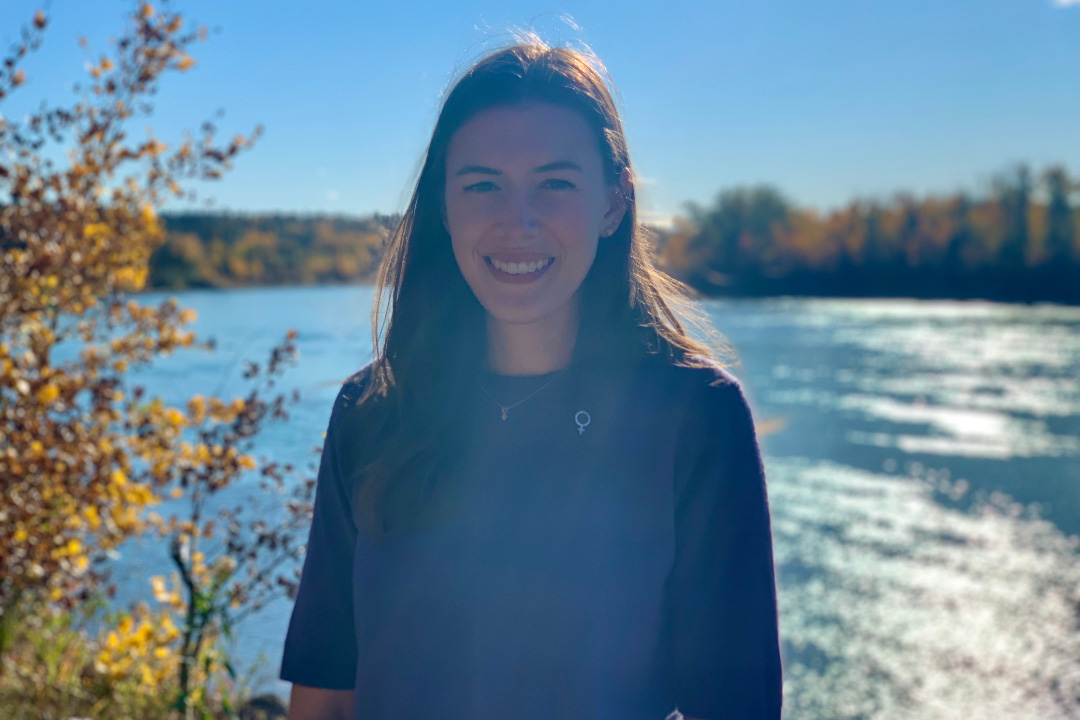
Research investigates how new mothers navigate the complexity of science during health care services
A former USask graduate student worked directly with new mothers to understand how they experience the scientific aspects of health care conversations. The purpose of the research is to improve communication and health service delivery.
By Brooke KleiboerUniversity of Saskatchewan (USask) Edwards School of Business graduate Natalie Bolen combined aspects of health care and service marketing to answer a crucial question – how do people experience and navigate complex medical science conversations with their health-care providers?
Bolen—a former Master of Science in Marketing researcher—aimed to address the challenges of communicating complex health information to patients by mapping the typical pathway of how people understand and consume science concepts in medical conversations.
“Health care is not often thought of as a marketplace or a service experience and I think that insights from the marketing discipline can have a profound impact on making the experience of patients better,” said Bolen.
“Satisfaction with care is the ultimate goal and motivator for patients to engage with and navigate science.”
Bolen conducted interviews with new mothers with children under one year of age to consider how science communication played a role in their health care experience. This included external factors that affected how science concepts were understood, when and where patients encounter science the most, and how health-care providers can improve the communication experience.
“I created a framework for patient decision-making with particular attention paid to the role of science communication—how we talk about and incorporate science and complex medical information—as part of the patient experience,” said Bolen.
The work was supervised by Dr. Maureen Bourassa (PhD), an associate professor of marketing in the Edwards School of Business.
Important findings from the study were that patients tend to encounter and notice scientific concepts most during three different points in their care: decision-making processes regarding care plans, when care policies and procedures are explained to the patient, and when patient outcomes are measured.
Bolen notes the characteristics and strength of a patient’s relationship with their health-care provider directly influences their ability and motivation to understand scientific concepts.
Specifically, for communication to be successful, the patient and the health-care provider need to be recognized by each other as ‘whole’ people, where both acknowledge they are human beings with intricate wants, needs, and experiences outside of their biology and medical requirements.
“The novel insight here is that wholeness in a service experience goes beyond whole-person care,” said Bolen.
“’Whole-person care’ has the outcome of meeting the medical needs of the patient. Wholeness has the outcome of subjective and affective well-being and satisfaction with the entire service experience. Both aspects of care are important and emphasize the strength of the relationship between the health-care professional and their patient as vital to successful outcomes.”
The research findings can help patients to advocate for their desired care by encouraging shared decision-making processes, increased autonomy and a full understanding of the evidence behind the care decisions that are made.
The findings can also help physicians and other health-care professionals work more collaboratively and efficiently in communicating with patients throughout the care process. It can also assist in the creation of educational materials for patients and institutions.
“This identification and clarification of science’s role in a health care experience could help individuals search purposefully for care that incorporates evidence-based decision-making and wholeness,” said Bolen of the importance of the research outcomes.
“By fully understanding the patient experience of science knowledge, my findings can empower patients to play a more significant role in their medical care and be more confident in their equal footing in these specific relationships.”
Bolen completed her master’s degree at USask in 2020 and is now a marketing PhD student at the University of Alberta, where she plans to pursue a career in research.
“The humans who live in our world are various, complex, unique and alive with possibilities. Marketing provides the ideal lens through which to study human problems and effect change.”
The research was supported by the Saskatchewan Centre for Patient-Oriented Research.
This article first ran as part of the 2021 Young Innovators series, an initiative of the USask Research Profile and Impact office in partnership with the Saskatoon StarPhoenix.
Brooke Kleiboer is a communications student intern in the USask Research Profile and Impact unit.
Article re-posted on .
View original article.

